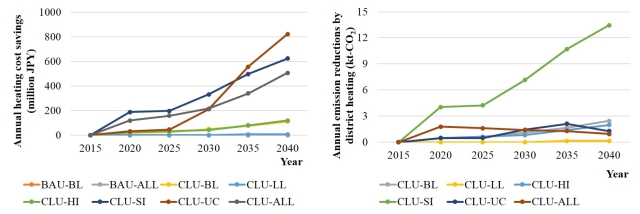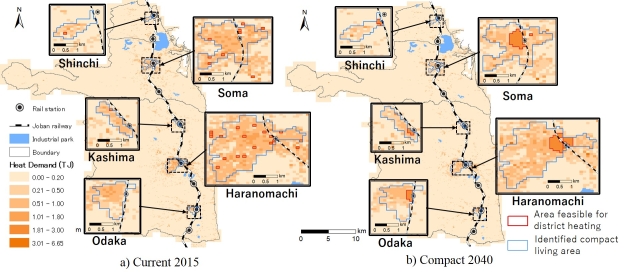論文情報
著者:Yi Dou(1, 2), Keijiro Okuoka(2), Minoru Fujii(1), Hiroki Tanikawa(2), Tsuyoshi Fujita(1), Takuya Togawa(3), Liang Dong(1, 4)
1 国立環境研究所 社会環境システム研究センター
2 名古屋大学大学院 環境学研究科
3 国立環境研究所 福島支部
4 ライデン大学
発表年:2018
掲載雑誌:Frontiers in Energy
論文へのリンク(英文のみ)
キーワード
building stock, compact city, district heating, energy use, Fukushima
概要
District heating systems using cogeneration technology and renewable resources are considered as an effective approach to resources conservation and reduction of greenhouse gas (GHG) emissions. However, wide-spread ageing and depopulation problems, as well as the popularization of energy-saving technologies in buildings, are estimated to greatly decrease energy consumption, leading to inefficiency in district heating and barriers to technology proliferation. From a long-term perspective, land use changes, especially the progression of compact city plans, have the potential to offset the decrement in energy consumption that maintains the efficiency of district heating systems. An integrated model is developed in this paper based on building cohort analysis to evaluate the economic feasibility and environmental impact of introducing district heating systems to a long-term compact city plan. As applied to a case in the Soma Region of Fukushima, Japan, potential migration from the suburbs to the central station districts is simulated, where district heating based on gas-fired cogeneration is expected to be introduced. The results indicate that guided migration to produce concentrated centers of population can substantially increase the heat demand density, which supports a wider application of district heating systems and better low-carbon performance. These results are further discussed in relation to technology innovation and related policies. It is concluded that policies related to urban land use planning and energy management should be integrated and quantitatively evaluated over the long term with the aim of supporting urban low-carbon sustainable development.






